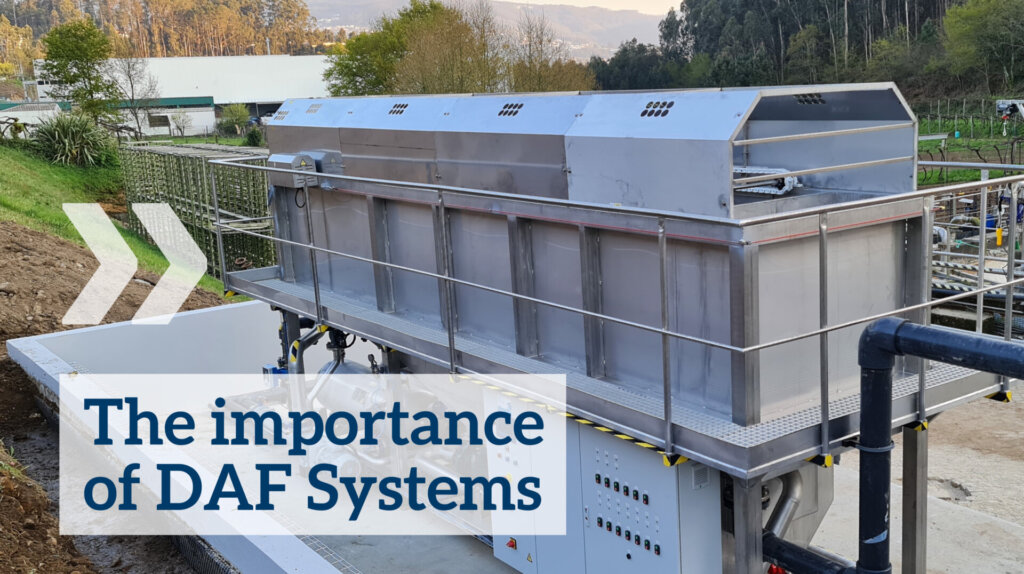
Growing concern about environmental preservation and the scarcity of water resources has led to a search for more efficient technologies for wastewater treatment. Among these technologies, Dissolved Air Flotation Systems, better known as DAF Systems (Dissolved Air Flotation), have stood out for their effectiveness and versatility. In this article, we will explore the importance of DAF Systems and how they contribute to more sustainable and efficient water treatment.
What is a DAF System?
DAF systems are used in wastewater treatment to remove suspended particles, oils and/or fats. The process is based on dissolving air in water under pressure and then releasing it in the form of “microbubbles”. The particles present in the water adhere to these microbubbles, where they are carried to the surface, forming a layer of sludge that is removed mechanically.
Advantages of DAF Systems
Efficiency in removing solids
DAF Systems are highly efficient at removing suspended solids, oils and fats, achieving higher levels of removal than other conventional methods.
Versatility
They can be applied in different industries.
The most common applications are:
– Physical-chemical treatment of effluents (e.g. reduction of organic load in biological treatment);
– Advanced solid-liquid separation (e.g. to overcome bulking or mass overload scenarios in secondary decanters);
– Thickening of biological sludge for sending to conventional anaerobic digestion.
Reduced installation space
Compared to other treatment systems, DAF Systems require less physical space, which is a significant advantage in installations where space is limited
Low operating costs
Despite the initial installation cost, DAF Systems have a low operating cost due to their energy efficiency and low maintenance costs.
Sustainability and the future of DAF Systems
With the growing demand for sustainable solutions, DAF Systems are becoming an increasingly popular choice. Their ability to treat large volumes of water with high efficiency and low environmental impact makes this equipment an ideal solution for wastewater treatment.
In addition, technological innovations continue to improve the performance of DAF Systems, making them more efficient and affordable. Research into new materials and processes promises to further reduce operating costs and increase process efficiency.
Investing in DAF Systems is not only an environmentally responsible decision, but also a strategic choice that can bring long-term economic benefits through reduced operating costs and compliance with environmental standards.
Talk to our team to assess the viability of DAF Systems.